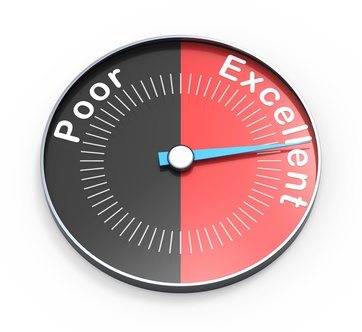So your credit has improved? Great job but…now what? Rebuilding your credit after past mistakes or a financial disaster is hard work. It is an endeavor that requires smart planning, consistency, and patience. Now you’re ready to reap the rewards of earning better credit, and the perks and benefits are numerous.
As your credit reports and scores improve you should reassess all of your outstanding debt and your monthly bills. Better credit often makes it possible for you to qualify for better rates, more attractive terms, lower premiums, and lower monthly payments. In other words, having better credit can help you to save a LOT of money. Check out this list of 4 steps you may want to consider taking once your credit is finally back on track:
1. Save Money with Refinancing
It’s no secret that most lenders reserve their best interest rates and loan terms for borrowers with excellent credit. If your credit scores have seen a significant improvement recently then you should take a long hard look at your interest rates and loan terms. Refinancing an auto loan (yes, you can refinance your auto loan) or a home loan at a better rate could save you money every single month. For example, if you were able to lower your interest rate by 3% on a $100,000 mortgage then you would save well over $110,000 in interest fees over the life of a 30-year loan.
2. Get a Better Credit Card
If you opened secured credit cards or subprime credit cards to help rebuild your credit, then applying for a more attractive unsecured credit card offer could be a wise financial move once your credit scores have recovered. The credit cards you are able to qualify for when you have credit problems do not offer the same rates, terms, and fees which you may eligible to receive once your credit scores have improved. Plus, you may also be able to qualify for credit cards with rewards or cash back programs that could benefit you as well.
If want to apply for a new credit card, confirm ahead of time that your newly improved credit does in fact meet the card issuer’s qualification standards. There is no point in applying for a card and having an extra inquiry tacked on to your credit report if you are unlikely to qualify for the account. Additionally, you do not want to go overboard and open too many new credit cards all at once either. Opening a large number of new accounts of any kind can lower your average age of accounts and, as a result, bring down your scores.
3. Pay a Lower Insurance Premium
Believe it or not, even the premiums you pay on your auto and homeowner’s insurance policies are influenced by your credit scores. Now that your scores have improved, you may be eligible to pay a lower insurance premium for the same or even better coverage. Shopping around for a new insurance policy might just net you a nice savings every year.
4. Consolidate Your Debt
Getting approved for new credit gets a lot as your credit scores improve. If you’re carrying around credit card debt that you can’t afford to pay off, you should consider applying for a consolidation loan or opening a new credit card account with a balance transfer option. Consolidating or using a balance transfer has the potential to save you money every month by lowering your interest rate. Also, paying off multiple credit cards, especially with an installment loan, will likely have a positive impact on your credit scores as well.




